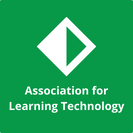All Media Releases
04 September 2025
This October, the ALT Annual Conference (ALTC25) returns to Glasgow for two unforgettable days of inspiration, connection, and innovation in learning technology. Taking place on Thursday 23 and...
26 November 2024
We are excited to present the programme for the ALT Winter Summit 2024, which is centred around the theme of “Future Leadership in Learning Technology”. This year, we've shaken up the format of our...
13 September 2024
Dr Julie Voce (PFHEA SCMALT) was awarded Honorary Life Membership at this year’s Association for Learning Technology (ALT) Annual Conference in Manchester, UK, on 4 September 2024.
ALT awards...
04 September 2024
We are delighted to share the winners of the Association for Learning Technology Awards 2024. The ALT Awards, now in their 17th year, continue to celebrate and reward outstanding research, practice,...
21 August 2024
The Association for Learning Technology (ALT) is excited to be hosting the ALT Annual Conference in Manchester from 3 - 5 September 2024. This unmissable event marks a significant milestone for the...
23 April 2024
The Association for Learning Technology (ALT) is thrilled to announce the return of the ALT Annual Conference to Manchester from 3 - 5 September 2024. The event will once again convene the vibrant...
07 September 2023
ALT awards Honorary Life Membership to individuals nominated by Members who have made an outstanding and sustained contribution to the advancement of ALT’s aims for the development of learning...
06 September 2023
The ALT Awards celebrate and reward outstanding research, practice and achievement in the field of Learning Technology. Now in their 16th year, the Awards have set a benchmark for outstanding...
04 September 2023
We are delighted to announce the launch of this year’s AmplifyFE Communities of Practice Sector Audit at ALT’s Annual Conference on 5th September 2023.
This year’s audit provides an updated dataset...
04 September 2023
The ALT Annual Conference is back and it’s bigger and better than ever! With 350-400 delegates from the UK and 12 countries across the globe we are expecting our biggest in-person audience for ALT’s...
